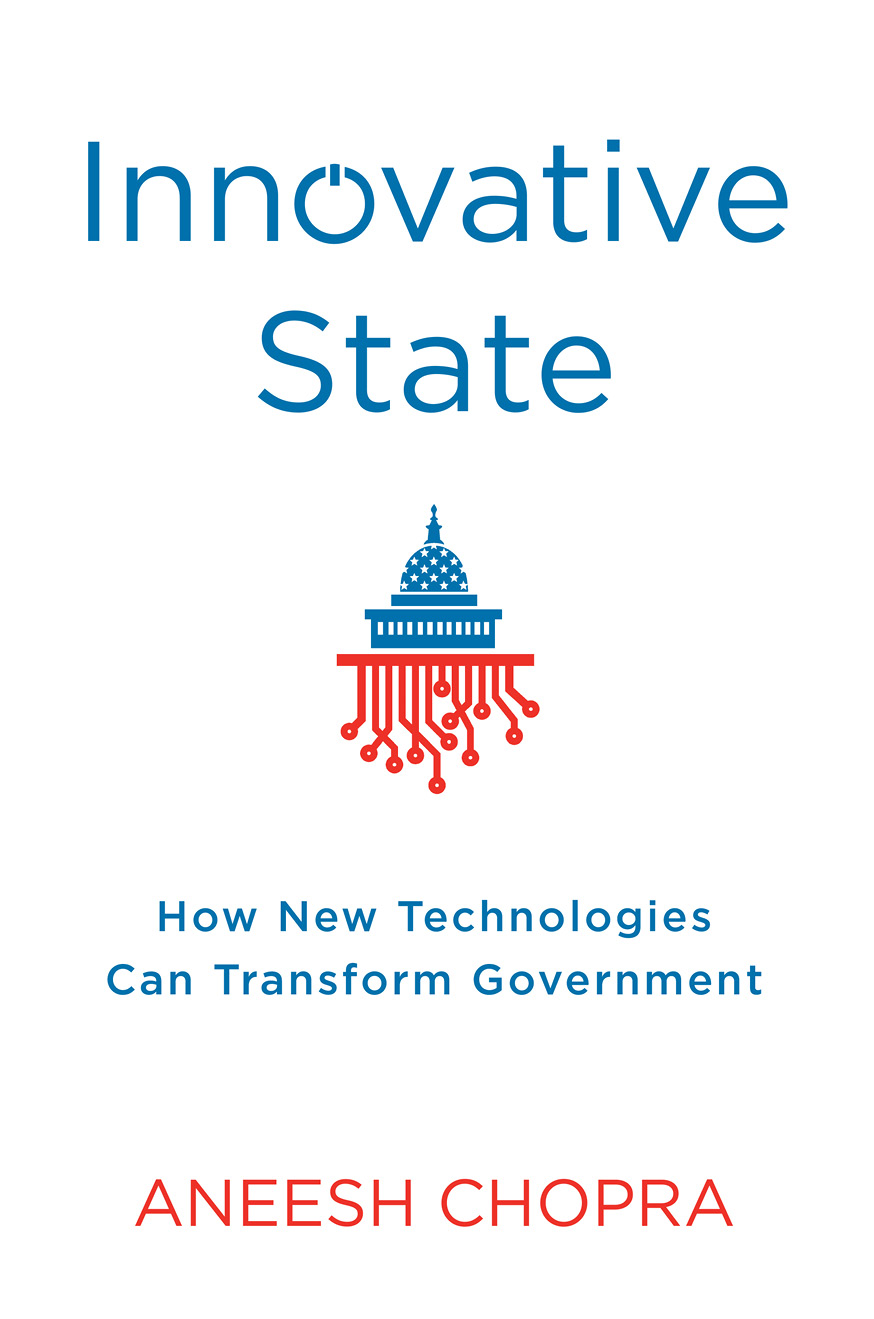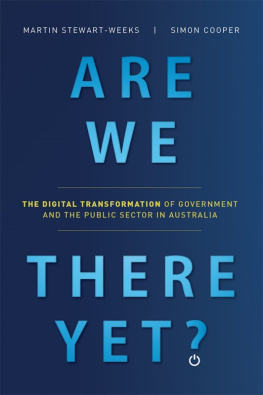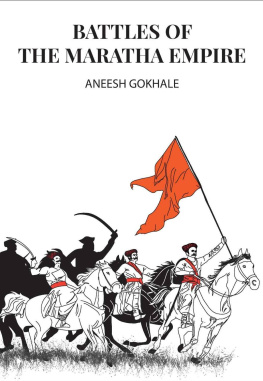
Innovative State
Innovative State
How New Technologies Can Transform Government
Aneesh Chopra
With Ethan Skolnick

Atlantic Monthly Press
New York
Copyright 2014 by Aneesh Chopra
All rights reserved. No part of this book may be reproduced in any form or by any electronic or mechanical means, including information storage and retrieval systems, without permission in writing from the publisher, except by a reviewer, who may quote brief passages in a review. Scanning, uploading, and electronic distribution of this book or the facilitation of such without the permission of the publisher is prohibited. Please purchase only authorized electronic editions, and do not participate in or encourage electronic piracy of copyrighted materials. Your support of the authors rights is appreciated. Any member of educational institutions wishing to photocopy part or all of the work for classroom use, or anthology, should send inquiries to Grove/Atlantic, Inc., 154 West 14th Street, New York, NY 10011 or .
Printed in the United States of America
Published simultaneously in Canada
ISBN 978-0-8021-2133-2
eISBN 978-0-8021-9346-9
Atlantic Monthly Press
an imprint of Grove/Atlantic, Inc.
154 West 14th Street
New York, NY 10011
Distributed by Publishers Group West
groveatlantic.com
Contents
CHAPTER
The Next Paradigm
CHAPTER
The Boy on the Chair
CHAPTER
The Virginia Model
CHAPTER
Opening the Playbook
CHAPTER
Open Data
CHAPTER
Standards and Convening
CHAPTER
Prizes and Challenges
CHAPTER
Lean (Government) Startups
Prologue
Government doesnt work. Many in the United States have come to that conclusion, convinced that our government is too big, slow, inefficient, and incompetent. Congressional approval ratings have sunk to shocking lows, even before the October 2013 federal shutdown, which caused Senator John McCain to quip that, in terms of supporters, Were down to blood relatives and paid staffers now., which seemed to only reinforce the notion that government was inept, incapable of effectively launching such an important, highly visible website.
During my time as Assistant to the President and our nations first Chief Technology Officer, I saw something that seemed to confirm the most cynical beliefs. This wasnt a problem at some peripheral agency, on the outskirts of government. This mess, in the fall of 2009, was at the Department of Veterans Affairs.
Since Americas inception, we have pledged to honor and support veterans in appreciation for their service. Over the years, we have largely upheld that promise through acknowledgment and accommodation. Veterans of the Revolutionary War received pensions as well as local and state-provided medical care, and more than ten thousand of them also were given grants of public land, anywhere from one hundred acres for a noncommissioned officer to 1,100 acres for a major general. These grants continued after the War of 1812, and matched the profile of our country at the timeindependent, rural, and expanding westward.
The long and bloody Civil War created an overwhelming demand for health services. After Abraham Lincoln used his second inauguration to call upon Congress to care for him who shall have borne the battle, and for his widow and his orphan, legislators sent him a bill for what was then called the National Asylum of Disabled Volunteer Soldiers, which he signed just weeks prior to his assassination. Veterans continued making progress, through World War IIs GI Bill and the expansion of the VA health care system.
A new century brought about a new sort of war, one that began with terrorists crashing planes into the World Trade Center, and continued in Afghanistan andmore controversiallyIraq. For those who served since September 11, 2011, Senator Jim Webb of Virginia, a decorated Vietnam War veteran and former Secretary of the Navy, conceived and sponsored the Post-9/11 Veterans Educational Assistance Act of 2008. The bill offered those servicemen and women the most comprehensive educational benefits since World War IIincluding full funding for a public four-year undergraduate education to veterans who had served three years of active duty since that date.
Yet, like so many endeavors that arose from noble intent, this one had been fraught from the start with errors in execution, which played out in operational delays. And, as is also often the case, the press had taken notice. The headlines came fast and furious. In the New York Times , one read Veterans Report G.I. Bill Fund Delays. The corresponding articles shared the frustrations of young veterans who had made significant life decisions based on these promised services, and then found, after they had made apartment deposits, purchased textbooks, and enrolled in classes, that they didnt know exactly how much of those expenses would be covered by the promised benefits. These delays were forcing some to take out loans to continue their coursework, keep their apartments and homes, or even eat their next meals.
As these anecdotes wormed their way to Washington, they began eating at Rahm Emanuel, the high-intensity White House Chief of Staff. I witnessed this firsthand, as I participated in the senior staff meetings every weekday morning in the Roosevelt Room.
Yet, for too many veterans of the wars of Iraq and Afghanistan, government wasnt working. Emanuel set a baseline goalstop the bleeding. So we awoke in the wee hours on October 9, 2009, and, digital tourniquets in tow, confidently boarded a military plane from Andrews Air Force Base, out of the hangar where the Presidents plane resides. Upon landing in St. Louis, our contingent, which also included top Veterans Affairs officials, headed off to a VA document-processing center to identify the root causes of the problem. That understanding didnt come through the mornings briefings behind conference room doors; it happened when we ventured out to the main floor to witness the processors at work. They had access to the information they needed to determine whether an applicant was entitled to a benefit, and how much. But the agents support software required too many steps, and screens, to view, combine, and process the necessary information. In order to answer two basic questions, the government processing agent needed to draw from roughly a dozen different databases, none of which talked to the other, requiring a great deal of back-and-forth manual checking for each application. No wonder there was a breakdown and a backlog, when nearly 280,000 veterans were applying for benefits in a tight time frame.
There was no easy, permanent fix, at least none that could be formulated quickly enough to immediately address all of those veterans needs. Yet, on the flight home, and in the days that followed, we settled on an intervention to alleviate the backlog. The agency added hundreds of temporary contractors from the private sector to confront the current crisis. Together, the White House and VA established a daily reporting cycle aimed at holding the agency accountable, with results forwarded to Emanuels office. We also approved emergency advance payments so that veterans could continue with classes while the agency sifted through their paperwork and sorted out their claims.
We simply did the best we could, and the results, in that sense, were reasonably satisfyingin the spring of 2010, the U.S. Government Accountability Office found that the VA had reduced the average national processing time for original Post-9/11 GI Bill claims by 19 days and supplemental claims by 23 days. After fully implementing a new automated process called a Long Term Solution, the processing time would be cut to an average of six days for students renewing the benefit in the spring semester of 2013.
Next page







